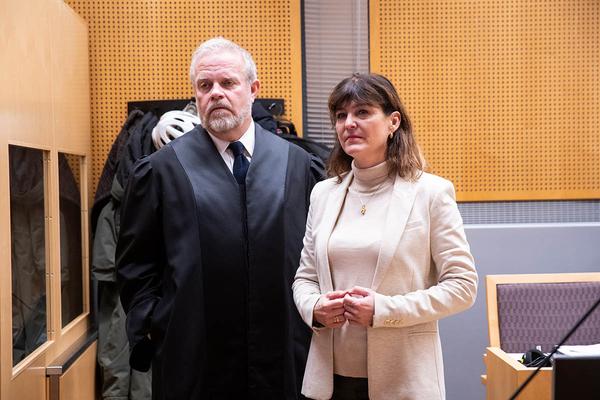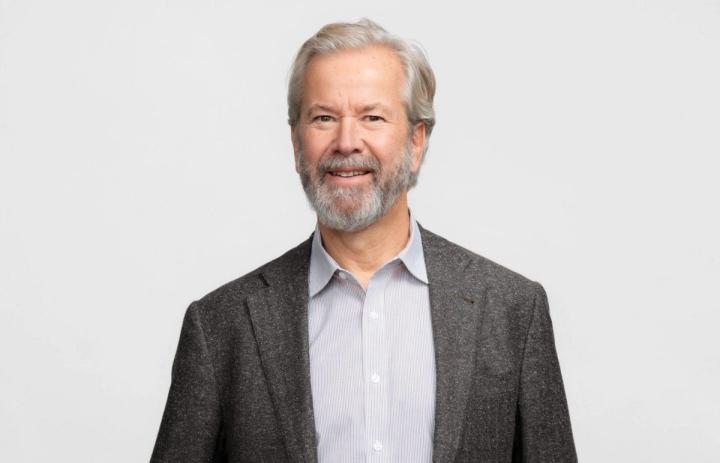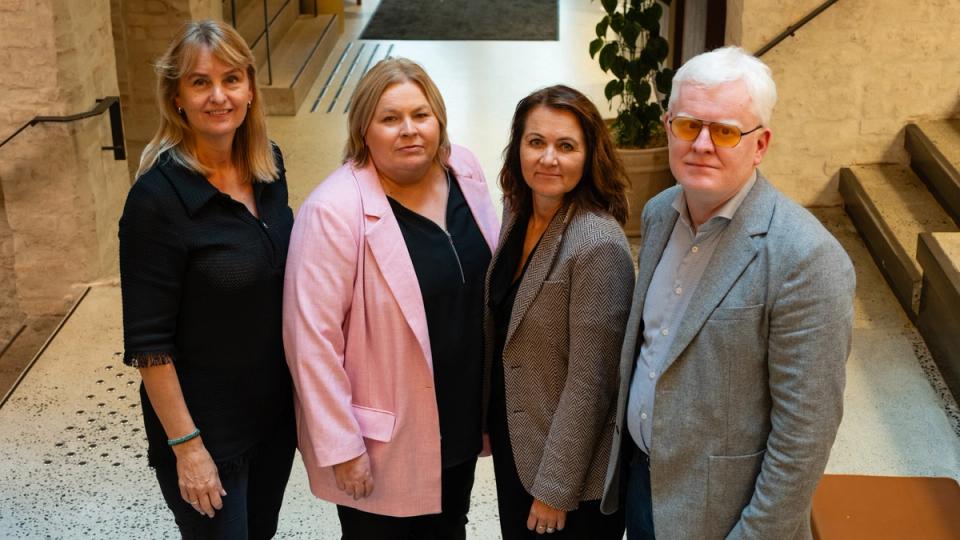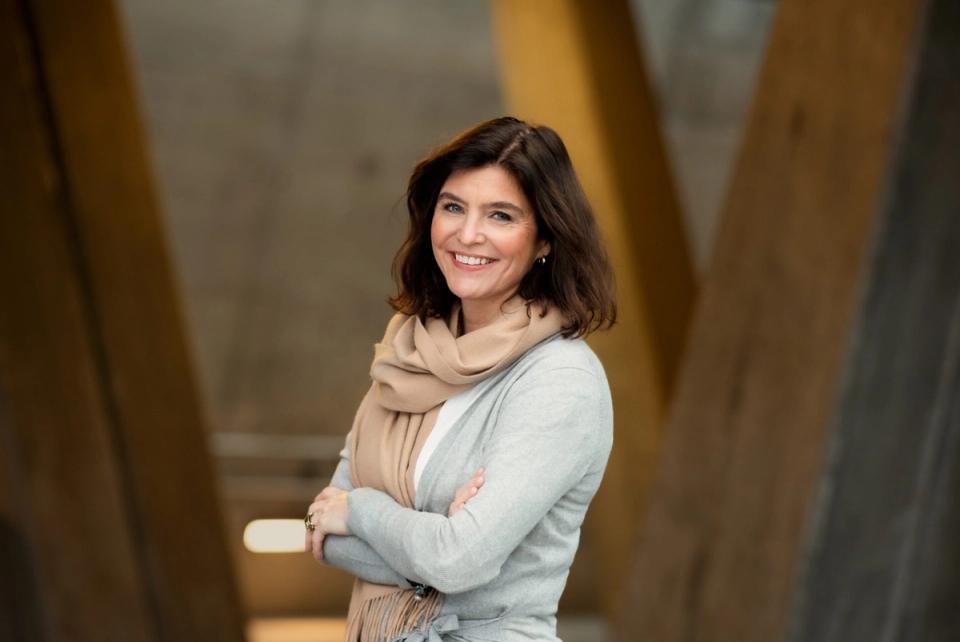15. juni 2018
The Power of Media

Kjersti Løken Stavrum, the CEO of the Tinius Trust, gave this speech at the ceremony for Masters in Media and […]
Kjersti Løken Stavrum, the CEO of the Tinius Trust, gave this speech at the ceremony for Masters in Media and Communications at the University of Oslo on June 14th 2018:
Dear Graduates, families, friends – and not least staff at the department, Congratulations to all of you!
You are now professional analysts of media. The rest of us are just talking about the media constantly; what’s in the news? Why? Shouldn’t it have been different, better in some ways? However, all of us are to a large extent dependent upon professional news media and journalists. And I have been asked to address you on the power of media today.
Being a journalist, understanding media, interpreting the times we live in – it’s not a question of being extremely speedy, witty or even pretty.
Those of you who want to stick out in this profession, those of you who have the ambition to contribute to enlightening the society, in my opinion you have one big challenge – and that is to be aware of what the philosopher Arthur Schopenhauer once defined as being genius. And genius, in his, and my, opinion is ‘seeing what everyone else sees and thinking what no-one else has thought.’In other words: You should always think twice.
In journalism, that is extremely important. Because we all have this profound and dangerous tendency to jump to conclusions.
This is contrary to the rules of science – as you have been adhering to these years. The rules of science tell you to test hypotheses by trying to refute them. However, people (and journalists are people, at least most of them), we seek data and information that are likely to be compatible with the beliefs we currently hold.
This is called confirmation bias, and this insight brought a Nobel prize to Daniel Kahneman who wrote about the difference between Thinking Fast and Slow.
If you ask me, his book should be compulsory reading for all journalists – put it on your reading list this summer!
Anyway, this confirmation bias will prone you to overestimate not only the probability of a disaster just because you have recently read about one, or that the politician will withdraw any day – just because you as a journalist have written critical about him or her lately. Or that the stone cliff Mannen will fall any second now! Confirmation bias will too often fool you to choose the same angle to your story as the rest of the news pack.
So let me mention one of those established conclusions that is highly relevant to you right now: The myth that journalism is losing ground.
Remember to think twice.
After years of redundancies in the newsrooms and systematic complaining on destroyed business models, it’s easy to think there is something wrong with journalism.
It is not.
I think it is on the contrary. The free and independent journalistic voices are more appreciated and more powerful than ever. Why else would the dictators and power people so eagerly seek to silence the journalists, or avoid them? Why else would so many try to dress their messages and propaganda as true news?
In the stew of content marketing, native advertising, influencers’ notorious activities and not least PR in all it’s different shades, we turn to the professional news providers for true information.
We do it constantly during the day, we read much more than we did in ancient times, from a huge variety of sources, as we walk to a meeting, wait for a bus, in the toilet, at the bar – we hunger for independent journalism. And not least; We want to believe in the news, we need to believe in the news.
When C.P. Scott, the legendary editor of The Guardian for more than 50 years, wrote his famous article ”A hundred years” of The Guardian he stressed that “A newspaper has two sides to it. It is a business, like any other and has to pay in the material sense in order to live. But it is much more than a business; it is an institution; it reflects and it influences the life of a whole community; it may affect even wider destinies”, he underlined, and called it “a moral as well as a material existence “ and pointed out that The newspaper could choose to “make profit or power its first object, or it may conceive itself as fulfilling a higher and more exacting function.
But when it comes to content, there is no choice according to Scott: “At the perils of it‘s soul it must see that the supply (of news) is not tainted. Neither in what it gives, nor in what it does not give, nor in the mode of presentation must the unclouded face of truth suffer wrong.
And then Scott put the record as straight as it could be, and formulated the quote that still lives on: “Comment is free, but facts are sacred.”
Scott wrote this in May 1921, almost a hundred years ago. It is more important than ever.
That also goes for Scott’s next message: “The voice of opponents no less than that of friends has a right to be heard. (…) It is well to be frank; it is even better to be fair. This is an ideal.»
So think twice – there might be someone out there who has done some thinking beyond yours.
In the wake of fake news, we talk a lot about trust and how to build it these days.
He who stands for nothing, falls for anything. And reporting is all about standing for what you do to be able to become trustworthy.
In a fresh study on how to build trust supported by the Knight Foundation, the conclusion was summed up in nine pieces of advice. I will just quote one, the first by the way, because I have not seen it so clearly expressed before:
“Journalists, remember, it is not all about you!”
According to the researchers, much because of social media journalists more and more focus on themselves, on developing personal brands rather than the profession. “This makes it difficult, the study says, to distinguish the work of individuals from the work of institutions, and increasingly turns journalistic institutions into platforms for the personal brands of individual reporters. When the journalists’ work appears indistinguishable from grabbing a megaphone — they become harder to trust. They aren’t really asking for trust.”
Maybe they are asking for attention?
Let’s speak more about a hundred years… Before gaining worldwide acclaim for the novel “One Hundred Years of Solitude” Gabriel Garcia Márquez was a journalist for newspapers in Colombia and Venezuela. He always defined himself as a journalist. He even called it “The best job in the world”. Márquez describes though how difficult it is to be a journalist, what expectations one need to meet. He describes the very thin and defining line between the sacred facts we need to believe in and the sheer novel writing:
“In journalism, he said, just one fact that is false prejudices the entire work. In contrast, in fiction one single fact that is true gives legitimacy to the entire work. (…) A novelist can do anything he wants so long as he makes people believe in it.”
It’s not fair. But then, one should not expect fairness in life. Journalists task is to keep calm and walk the thin line of checking facts. And always check with the one that is being accused or criticized – it might be that there is an explanation, a perspective or a piece of the story that you have missed. It might even be that your confirmation bias is restraining you and thus your work.
Journalists should stick to the facts. Just as is the Turkish editor in chief of dokuz8news Gürkan Özturan’s approach to the notorious accusations against the press in Turkey these days: Refer to facts, then it is very difficult for the powerful people to undermine your stories.
Some are concerned that technology is undermining the media and journalists. Márquez was one of those technological concerned people. They are wrong.
Just think about it. At my first day at work as a journalist in the local paper in the city where I was born back in 1987, I started putting a piece of paper into the typewriter. That seems like a hundred years ago.
The next huge change in the media and to the newsrooms will be artificial intelligence and the consequences of voice enabled technology. This next disruption is at our doorstep. My advice, based on my experience with typewriting on paper is this; try not to resist the changes that come your way. Don’t worry if it turns your way of expressing yourself upside down. You don’t know if the way you currently work is better than the one to come.
The story and development of media and journalism has always been intertwined with technological progress. It was not better at the times when we published a newspaper once a day. It was not better when the photographer had to rush back to the hotel room to develop the film in the sink, hang up the film rolls in the bathroom to dry – while the writing reporter carved telephone lines out of the walls of his or her room to be able to transmit the story back home. It was not at all better times for journalism when we didn’t know if the story was read or not, or if there was something wrong or misinterpreted there, and it was not glorious days for journalism when we had no idea of what people thought of what we had done.
If someone tries to tell you that narrative of a glorious past, it is another example of conformation bias, or just pure nostalgia. They maybe even think the summers were better at that time too.
The context for journalism has never been more difficult, complex or complicated than right now. It has never been more challenging to the reporters who deals with sources that are highly skilled expert in all fields, reporters who can be trolled by both humans and bots, who can be accused by presidents for bringing fake news. Presidents who wish journalism could be PR.
But then, no one promised us it would be easy. Journalism can always improve, it can be more accurate, more transparent, more fair and fact based.
But the context for journalism has never been better; journalistic content has built huge companies like Google, Facebook and Twitter. We support others like Snapchat and to some extent Instagram. There is still something wrong with the business model of producing journalism. But that must not be confused with there being something wrong with the idea of journalism.
Some of these principles were: Benefit society, avoid bias, respect privacy, be accountable to the public, maintain scientific rigor.
I noticed the other day that Google had put up a list of principles their employees should live by.
Who were these employees? Were they reporters? Are Google to produce content? Nope. These are the principles for their artificial intelligence researchers, to prohibit them to develop autonomous weapons in the future.
It is a new world for the brave once. Your next colleague might well be a robot.
I know that one can be famous for addressing students in a speech like this.
By just reminding you to always wear sunscreen, one can provide a text for a song sung for ages around the world.
My advice is more challenging: Always think twice.
In ancient times, there were days when the paper was too full to print all the stories. Sometimes, the editor said no to your idea, your very good idea, by the way. Annoying. It has always felt difficult. But times they are a changing. Times within the news media have changed and altered so much.
But not the idea, nor the task, of free and independent reporting.
To make an impact as a journalist, it is no longer defined by the restraint of a paper, the minutes of a radio program or the editor as a gate keeper.
It is much more difficult now. Because now it is all up to you.
Good luck!



